I presently make use of two subscription social bookmarking services (Diigo and Memex) and one service that is presently free (Glasp). If I was forced to select one for its capabilities, it would be Glasp. While I am annoyed when a service I have used for years adds new features I never use and then expects a bump in the subscription price, I have the opposite opinion of Diigo. It does what it has always done, there just have been no new developments in years.
To be fair, most of the features I find most interesting about Memex and Glasp have little to do with the social components. I have written about both services in previous posts so I will not review most features, but concentrate on how Memex and Glasp use AI.
When it comes to AI, my primary interest is how AI can be used to process specific content I have already identified. At present, these two systems differ in how they stored content. Glasp assumes I want to ask questions or ask for the processing of content I have accumulated over time (all bookmarked sources). Memex assumes I want to ask questions of a specific source. There are cases in which each is what I want.
Memex Garden (the computer-based and not the tablet/phone Memex Go) allows the user to apply AI to a selected source (Ask and then select summarize selection, summarize the entire source, or general question). In general web pages are short enough that my highlights and annotations are easy enough to scan that these options are not particularly useful. However, Memex allows the annotation of PDFs which are long enough, and because I mostly read journal articles as PDFs complex enough that summarization may be helpful.
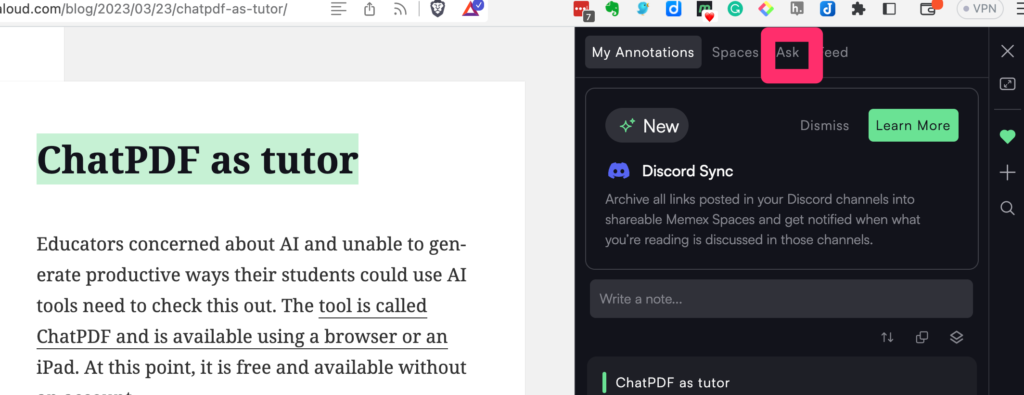
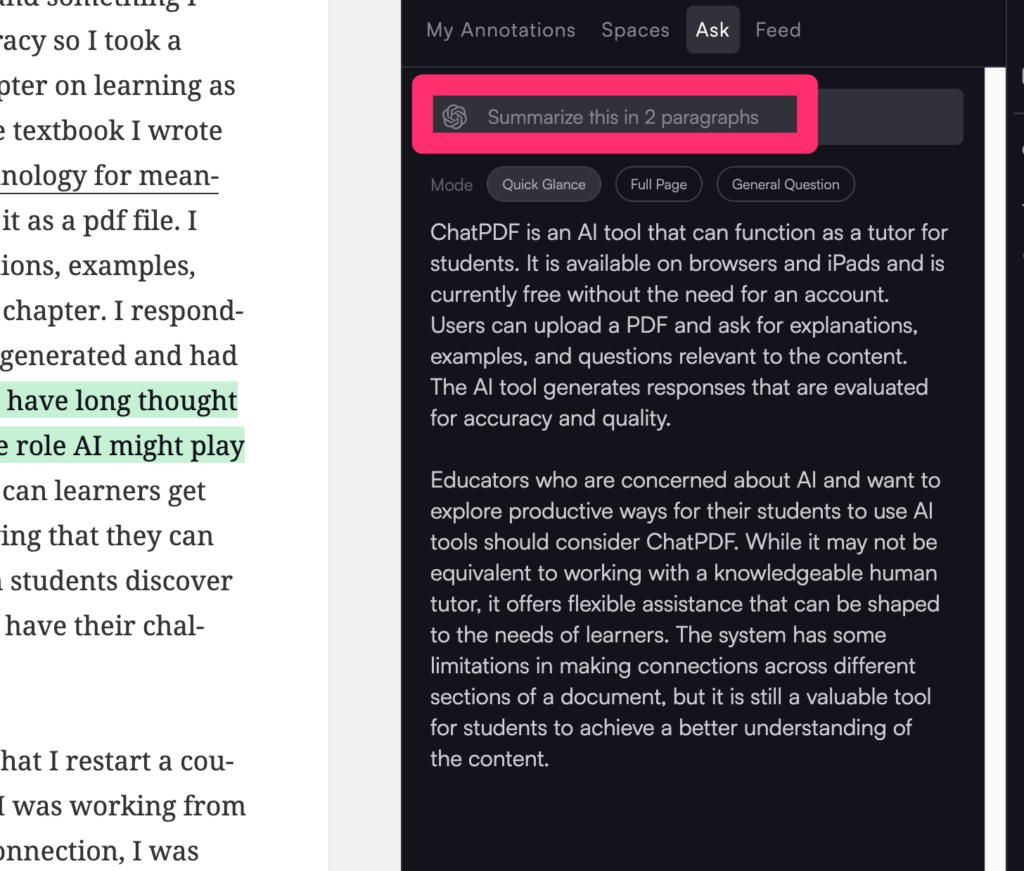
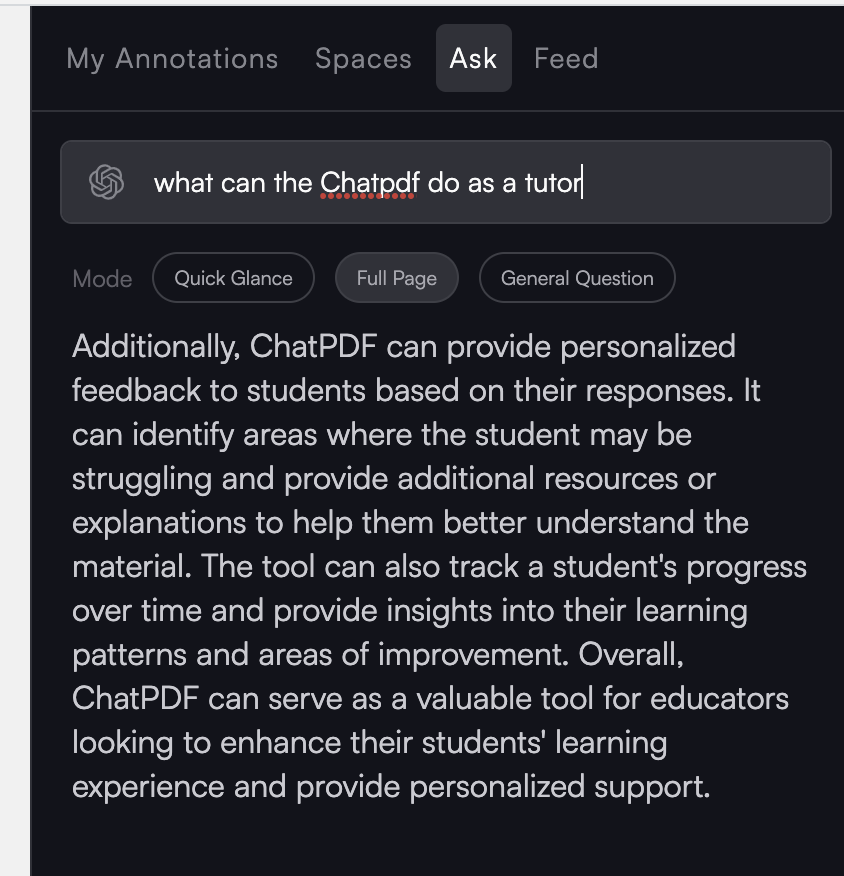
In contrast, Glasp applies AI across all of the content that has been collected. Note, this applies only to web content and not Kindle book highlights and annotations which can be accessed through this service. Glasp does not presently allow the highlighting and annotation of PDFs. The nice thing about the AI application in Glasp is that it identifies the specific sources that are used in responding to inquiries.
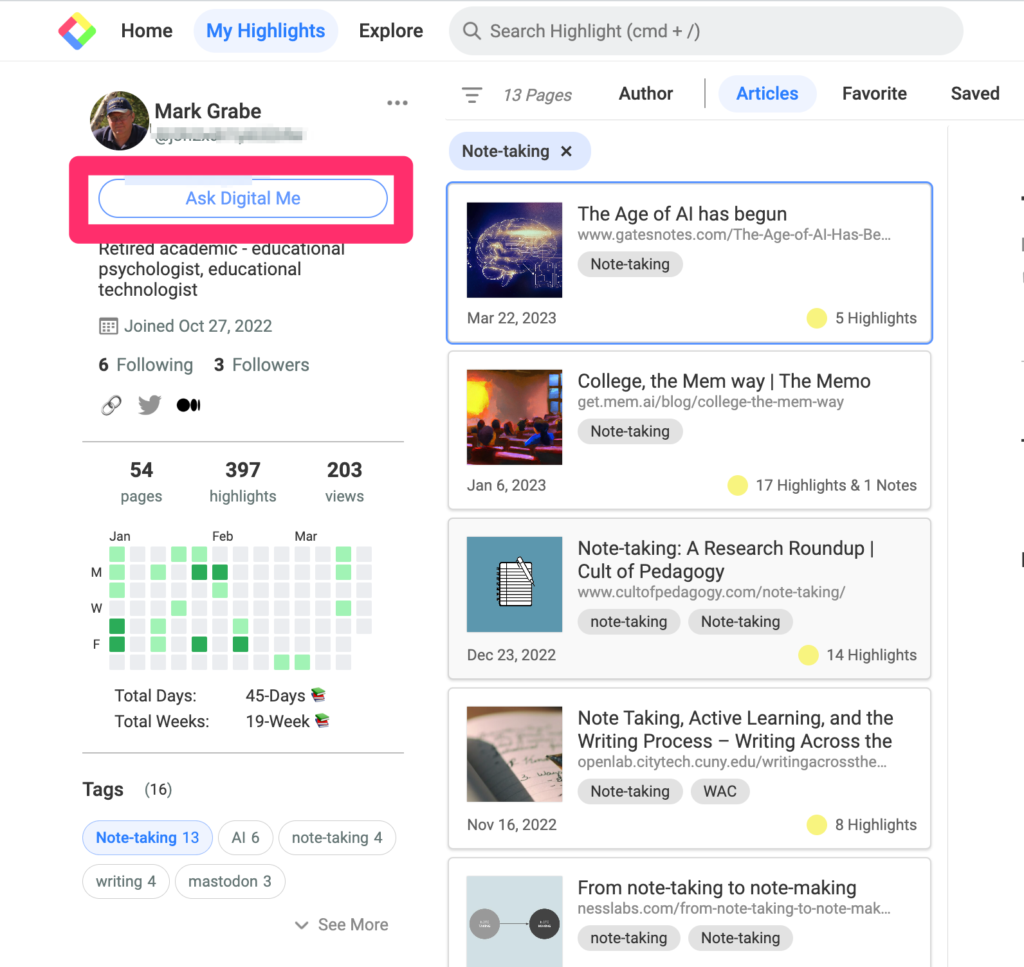
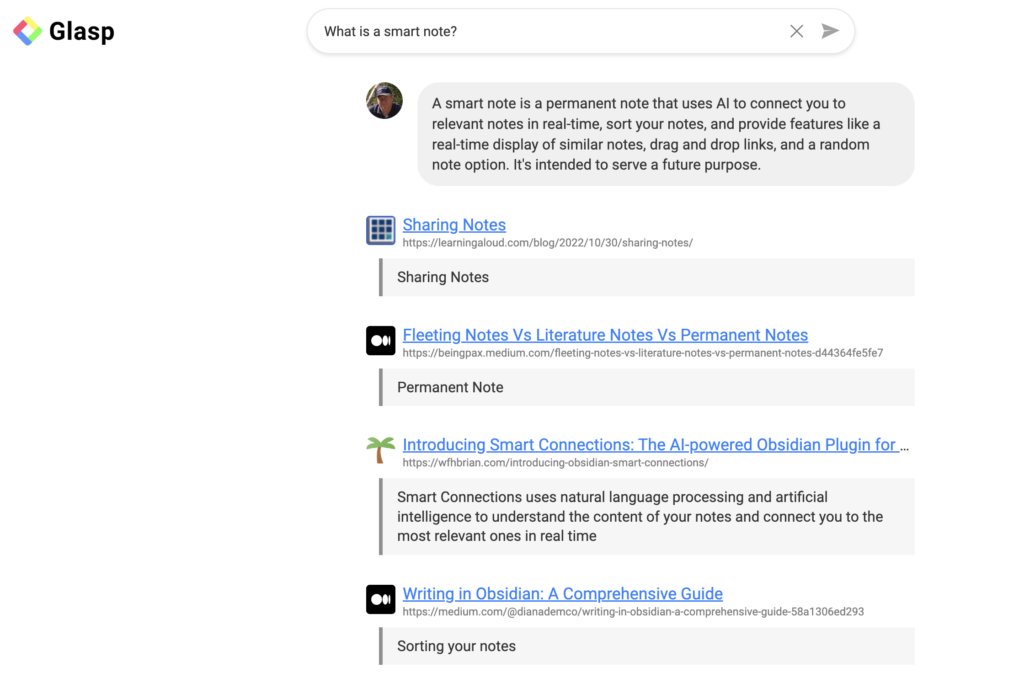
While I said I would not focus on social capabilities, Glasp does have an interesting AI social capability. Glasp allows a user to designate the account of another user and ask questions of that user’s public annotations. This may seem a little creepy, but the mission of Glasp clearly emphasizes the collective intelligence or efforts of users.
The following is an example of the content from one of the developers I was able to ask AI to query.
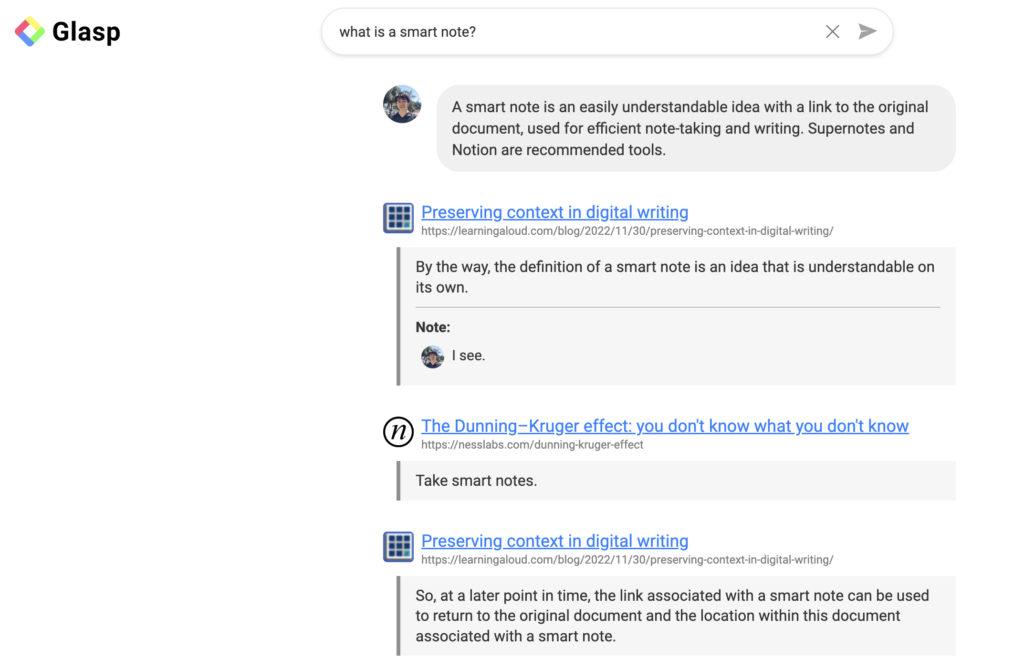
Almost there
I have been able to exchange texts with both the Memex and Glasp developers expressing my interests. I am most interest in having an efficient want to explore the highlights and annotations I have applied to Kindle books and PDFs because these are the sources I mostly focus on in my professional work. I can understand why copyright issues may be factor to consider in sharing highlights from commercial products (books, journal articles), but I would hope there would be an easy way for access to be limited to the sources I own. Perhaps notes could be treated as shareable, but not highlights. Goodreads allows the sharing of some highlights so some sharing must be allowed.
172 total views
You must be logged in to post a comment.